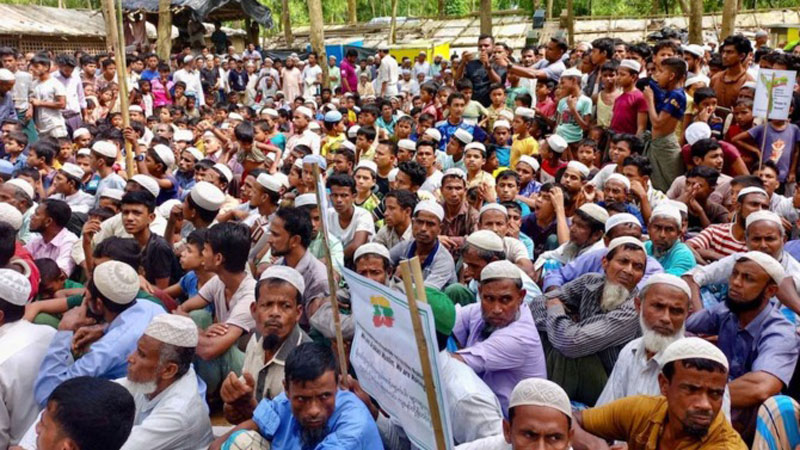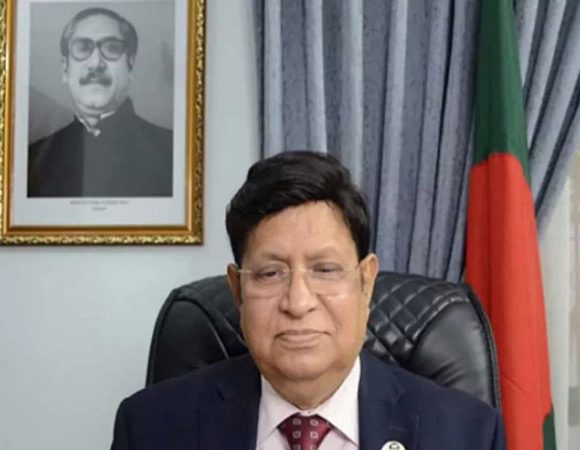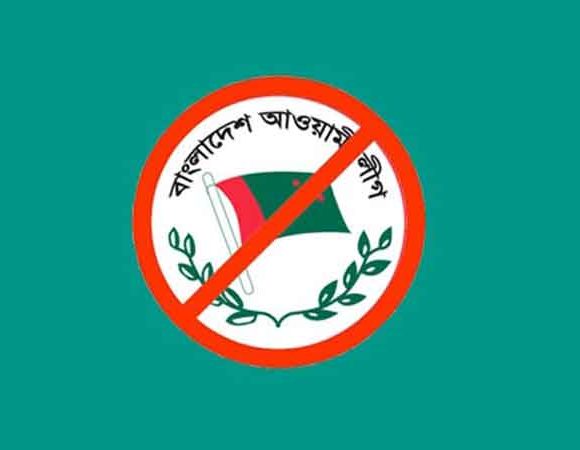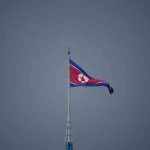Rohingya activists call for more international pressure on Myanmar

Rohingya activists in Bangladesh are calling on the international community to increase pressure on Myanmar following a renewed call at the UN for safe and sustainable repatriation of the persecuted minority to their homeland, Arab News reports.
Rohingya Muslims and other minorities in Myanmar have endured decades of systematic discrimination and persecution, including the 2017 military crackdown that killed thousands and displaced hundreds of thousands from Rakhine State.
Earlier this month, the UN Human Rights Council adopted a resolution on the human rights situation of the Rohingya and other Myanmar minorities, making it among the latest to call on the government in Naypyidaw to create “conducive conditions for the voluntary, safe, dignified and sustainable” repatriation.
“To ensure sustainable repatriation, there should be much more pressure from different sides by the international community on the Myanmar government,” Mohammed Rezuwan Khan, a Rohingya rights activist in Cox’s Bazar, told Arab News this week.
“All of us Rohingya are eager to return to our homeland. But there should be a conducive situation over there in Rakhine. In the current situation, if we return, the Myanmar government will persecute us again.”
Khan is among more than a million Rohingya languishing in refugee camps in Bangladesh, which for years has hosted and provided them with humanitarian support despite not being a signatory to the 1951 UN Refugee Convention.
The developing country spends an estimated $1.2 billion annually to support the Rohingya, as international aid for the community has been dropping since 2020. The UN World Food Programme cut food rations for the group earlier this year, as its pleas for donations had not been met.
The Rohingya community in Cox’s Bazar is suffering as it seeks certainty about their future, Khan said.
“If we are forced to live here for a longer period, it will create a lost generation of Rohingya,” he said, alluding to the lack of educational and work opportunities for the community.
Rohingya in Myanmar also feel “they are not safe enough,” Khan said, while those in Bangladesh similarly feel unsafe due to rising crime in the camps.
“A sense of insecurity prevails here among us all the time,” Khan said.
“I don’t know when I would be killed by whom; that’s why we don’t want to continue living here. We appeal to the international community to ensure a sustainable solution to this Rohingya crisis.”
An increasing number of Rohingya risk perilous boat journeys to leave Bangladesh for countries such as Malaysia and Indonesia. In 2022, over 3,500 attempted dangerous sea crossings, according to the UNHCR.
Despite various plans for the Rohingya to return to Myanmar over the years, no practical progress has been made. The latest attempt took place in May, involving refugee community leaders and Bangladeshi officials visiting Rakhine State to assess the possibility of repatriation.
Mohammad Jubaer, chairman of the Arakan Rohingya Society for Peace and Human Rights in Cox’s Bazar, highlighted the importance of accountability.
“The international community should ensure some accountability issues like dignity, security, etc. In the place where we will be living in Myanmar, it should be a safe zone maintained by the international community. Otherwise, the Myanmar authorities will again forcefully send us to Bangladesh like before,” Jubaer told Arab News.
“It’s not only the issue of persecution of Rohingya. All other ethnic minority groups in Myanmar should be protected,” he said.
“The international community should exert more pressure on Myanmar to ensure this.”
Developed countries and intergovernmental organizations bear “ethical responsibilities” when it comes to the Rohingya issue, said Mohammed Nur Khan, a Bangladeshi rights activist and migration expert.
“Since they are in an advanced position in terms of political and financial situation, so, ethically, the responsibilities go more on them. Firstly, they can open the door of discussions at the UN platform. It’s very much crucial,” Khan told Arab News.
“Secondly, they can compel the Myanmar junta to create a favorable environment by exercising different approaches like imposing economic sanctions and others. The international community should engage regional platforms like ASEAN more actively,” he said.
Khan said the latest UN resolution may spark more efforts from the Myanmar government to improve the situation in Rakhine State, but he is unsure it can create a thoroughly conducive environment for the Rohingya.
The UN resolution comes following high-profile visits to refugee camps in Bangladesh, including OIC Secretary-General Hissein Brahim Taha and Chief Prosecutor of the International Criminal Court Karim Khan.
“But it should be done, even if it takes time. Without ensuring this, it wouldn’t be the right decision for us to repatriate the Rohingya. I don’t think the current situation in Rakhine is favorable for ensuring a secure living environment for anyone.”

















